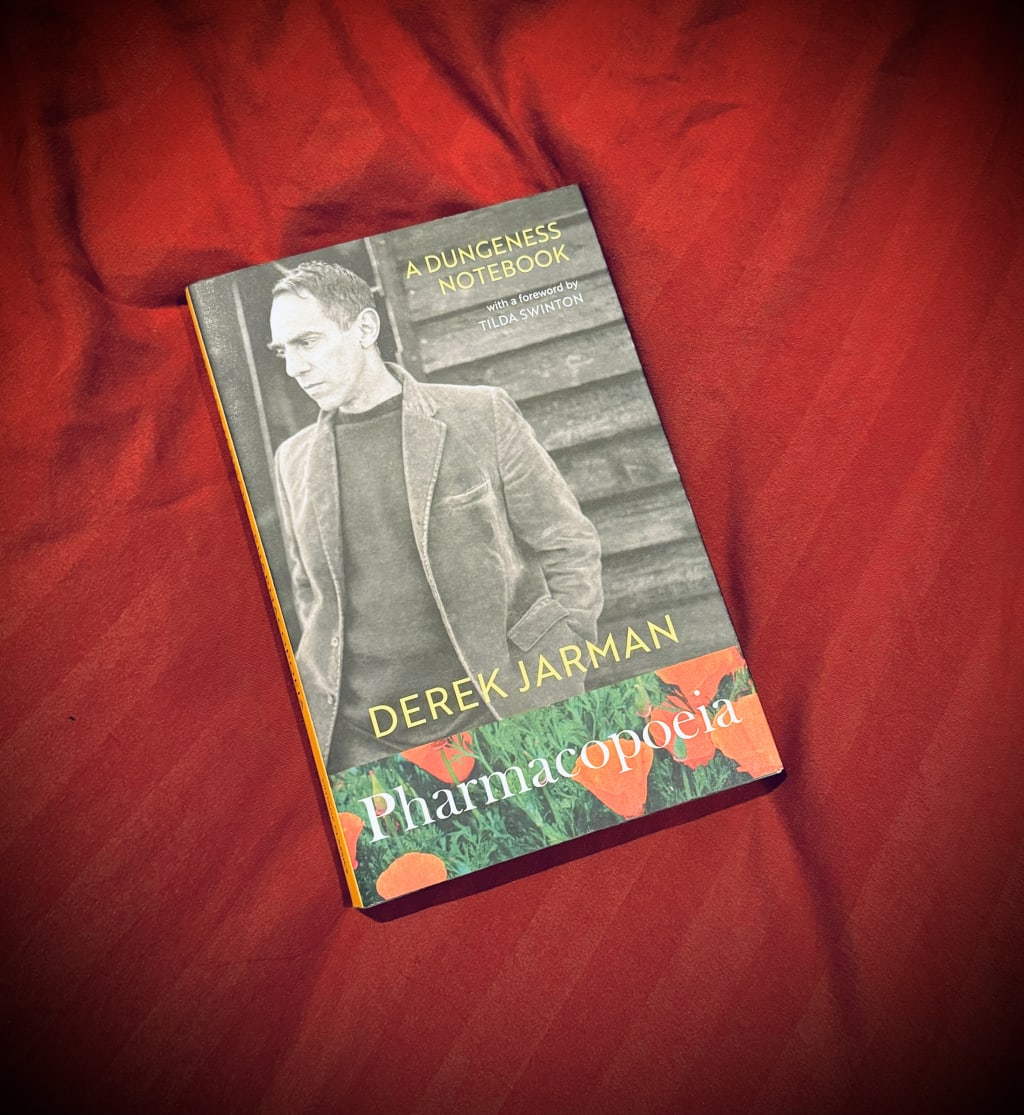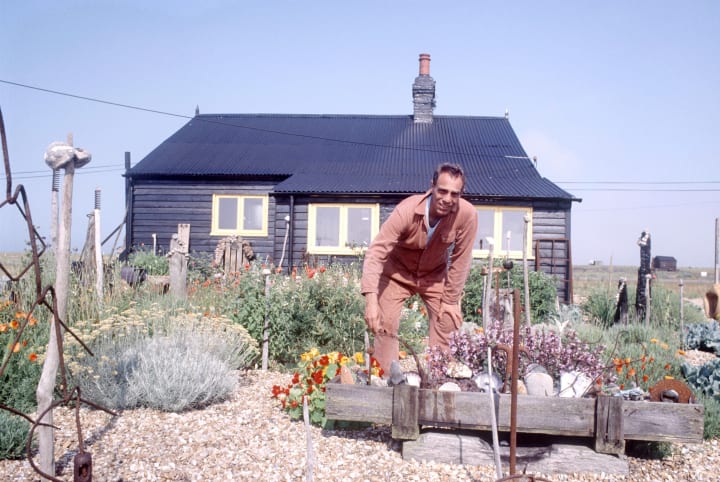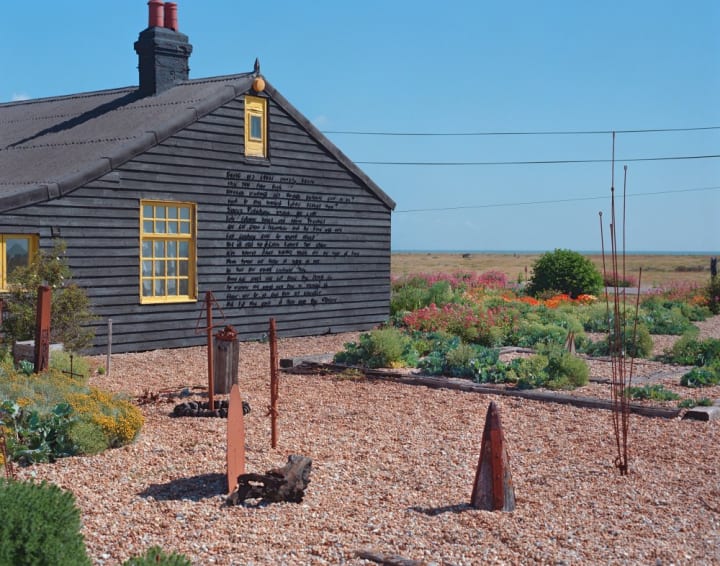Book Review: "Pharmacopoeia" by Derek Jarman
5/5 - a testament to the horticultural life of a legendary director...

I think we all know by now how much I adore Derek Jarman and his movies. I regard his film ‘Caravaggio’ as one of the greatest movies ever made and his film ‘Edward II’ possibly the greatest adaptation to be made of the play ever. Unfortunately, Derek Jarman succumbed to AIDS and died in the mid-1990s having only made films since the 70s. I can honestly say that though he was a short-lived talent, he will by no means be forgotten to time. With a cracking introduction of how Jarman was first attracted to the house and garden written by his good friend and actress, Tilda Swinton, this book is a testament to garden therapy and how it can help the ease the suffering. Derek Jarman stands to be not only a great director but also a brilliant writer. I have read many of his books and this one is just like the other - absolutely captivating.
As I have already said, it starts off with an introduction by Tilda Swinton in which she and Derek Jarman are driving around looking for a good place for him to live as he has outgrown the bustle of London. He no longer likes the noise there and, with the recent diagnosis he has received, it is probably a better idea that he lives somewhere quieter. Derek Jarman settles on a small house that he loves, one where he can grow a garden and be away from the noise of the cities. It is a wonderful introduction that remarks on Jarman’s want for his films to be forgotten after he dies. I am sure as Tilda Swinton is that this will never happen, not as long as some of his films have appeared on the lists of the greatest British films ever made. He is truly a fantastic director, but he is an even more fascinating human being - on an entirely different level of intellect and imagination than all of us.

It then goes into Derek Jarman’s narrative and within the first sentence he states that he is living on borrowed time and yet, he doesn’t feel bad about it or upsetting about it or resentful, or anything negative. He moves on to describing how he is going to plant this garden and what he is going to put there out of experience. He talks about the violets and how his grandmother once remarked that they corrupted the air and were the flowers of death. Opposed to this, Derek Jarman seemed to have different ideas for these plants and did not think they were as grim as being the flowers of death. He goes through his want to create a garden for it to be a sense of therapy for him.
In the next part he starts to go through the plants one by one. He talks about how Rosemary is relative to Charlemagne and how Narcissus was named. He talks about how he is sad that strawberries, mushrooms, avocados etc. are so abundant instead of being great and seasonal, presenting themselves as if a debutante on show at a ball. He remarks how you can no longer remember eating the first ‘something’ of a season but rather how mass production has kind of ruined the requirement for seasonal fruits and vegetables. Though he feels sad about this, he holds little animosity towards it, simply making the observation and stating that it might be a little upsetting in the long run. This is something I like about Derek Jarman’s works. He doesn’t hold these strong beliefs that you cannot argue with. Instead, he presents you with an argument that you might want to think about, a philosophy that you might want to ponder on and you start pondering. It takes you away to new realms and for a split second, you can see the world as he saw it. It is a brilliant experience. There are a few more parts in this book, but I don't want to give the whole game away. Sometimes, it can get pretty upsetting, knowing what he's going through.

All in all, I think that this book is a brilliant testament to who Derek Jarman was and, along with his book ‘Chroma’ is possibly the one book that you can learn the most about his philosophies and lifestyle from. From talking about how he cannot eat and has been sick all night to speaking upon how the plants in his garden have either grown or how the trees have died, this man is a true man of nature and, as a director, should never be forgotten.
About the Creator
Annie Kapur
200K+ Reads on Vocal.
Secondary English Teacher & Lecturer
🎓Literature & Writing (B.A)
🎓Film & Writing (M.A)
🎓Secondary English Education (PgDipEd) (QTS)
📍Birmingham, UK
X: @AnnieWithBooks
Enjoyed the story? Support the Creator.
Subscribe for free to receive all their stories in your feed. You could also pledge your support or give them a one-off tip, letting them know you appreciate their work.






Comments (1)
One of the great lost talents of our time.